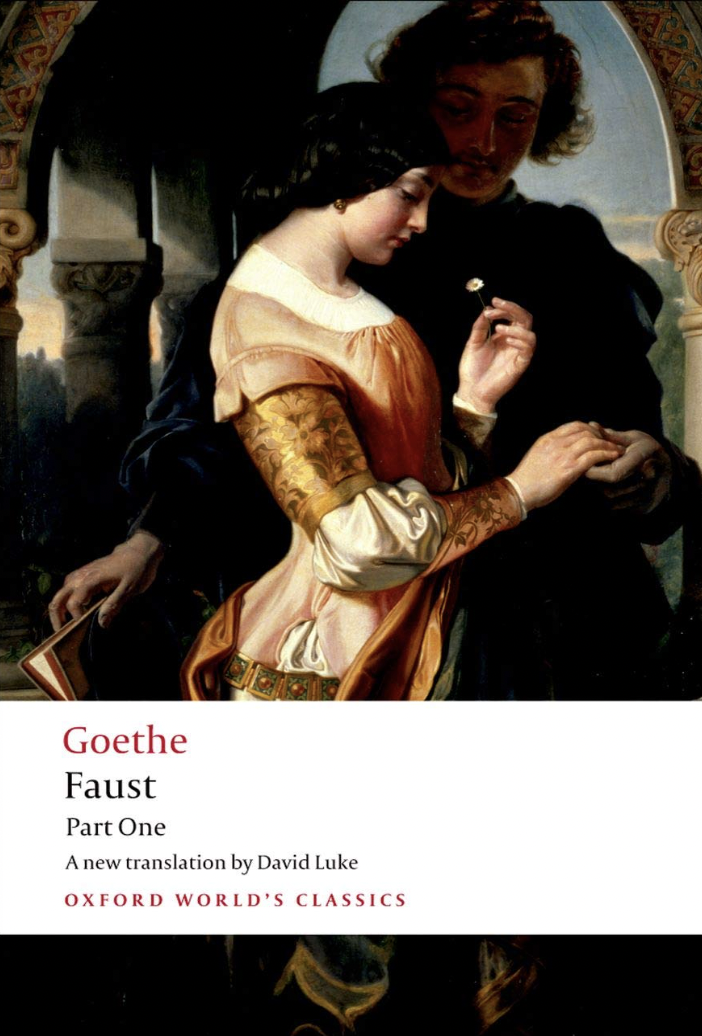Faust: Part One
This new translation, in rhymed verse, of Goethe's Faust--one of the greatest dramatic and poetic masterpieces of European literature--preserves the essence of Goethe's meaning without resorting either to an overly literal, archaic translation or to an overly modern idiom. It remains the nearest "equivalent" rendering of the German ever achieved.
The legend of Faust grew up in the sixteenth century, a time of transition between medieval and modern culture in Germany. Johann Wolfgang von Goethe (1749-1832) adopted the story of the wandering conjuror who accepts Mephistopheles's offer of a pact, selling his soul for the devil's greater knowledge; over a period of 60 years he produced one of the greatest dramatic and poetic masterpieces of European literature.
David Luke's recent translation, specially commissioned for the Oxford World's Classics series, has all the virtues of previous classic translations of Faust, and none of their shortcomings. Cast in rhymed verse, following the original, it preserves the essence of Goethe's meaning without sacrifice to archaism or over-modern idiom.
This new translation, in rhymed verse, of Goethe's Faust--one of the greatest dramatic and poetic masterpieces of European literature--preserves the essence of Goethe's meaning without resorting either to an overly literal, archaic translation or to an overly modern idiom. It remains the nearest "equivalent" rendering of the German ever achieved.
The legend of Faust grew up in the sixteenth century, a time of transition between medieval and modern culture in Germany. Johann Wolfgang von Goethe (1749-1832) adopted the story of the wandering conjuror who accepts Mephistopheles's offer of a pact, selling his soul for the devil's greater knowledge; over a period of 60 years he produced one of the greatest dramatic and poetic masterpieces of European literature.
David Luke's recent translation, specially commissioned for the Oxford World's Classics series, has all the virtues of previous classic translations of Faust, and none of their shortcomings. Cast in rhymed verse, following the original, it preserves the essence of Goethe's meaning without sacrifice to archaism or over-modern idiom.
This new translation, in rhymed verse, of Goethe's Faust--one of the greatest dramatic and poetic masterpieces of European literature--preserves the essence of Goethe's meaning without resorting either to an overly literal, archaic translation or to an overly modern idiom. It remains the nearest "equivalent" rendering of the German ever achieved.
The legend of Faust grew up in the sixteenth century, a time of transition between medieval and modern culture in Germany. Johann Wolfgang von Goethe (1749-1832) adopted the story of the wandering conjuror who accepts Mephistopheles's offer of a pact, selling his soul for the devil's greater knowledge; over a period of 60 years he produced one of the greatest dramatic and poetic masterpieces of European literature.
David Luke's recent translation, specially commissioned for the Oxford World's Classics series, has all the virtues of previous classic translations of Faust, and none of their shortcomings. Cast in rhymed verse, following the original, it preserves the essence of Goethe's meaning without sacrifice to archaism or over-modern idiom.

